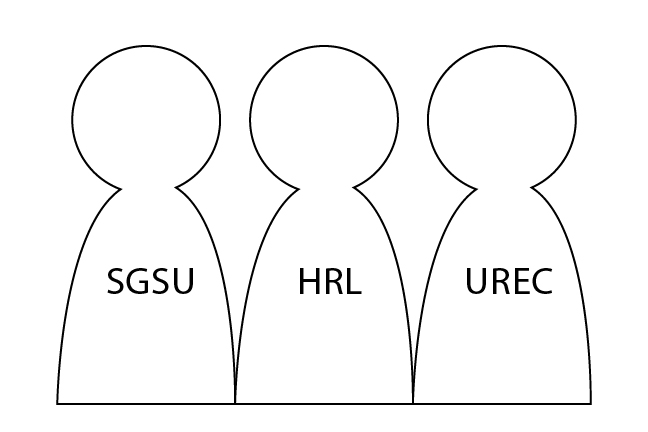As the March for Science brought out community leaders from across the country, Seattle University ushered in new leaders of its own. The annual leadership conference called iLead returned with new material and direction but remains centered on the cultivation of sustainable leadership.
A combination of staff and graduate assistants, many of whom are alumni and attended iLead themselves, coordinated the two days of workshops and training. Each year the event brings in several student leaders, but this year, unlike past years, some participants went beyond simply attending the event.
“iLead is really a team effort,” said Gretchenrae Campera, project manager for the Innovation Center and the main organizer of iLead. “I’ve had the privilege of coordinating it, but it would not have been successful without the buy-in from our student groups.”
Included in the planning committee were staff members representing offices such as Housing and Residence Life, the Center for Student Involvement and the Office of Multicultural Affairs. One of the many changes made for this year’s iteration of iLead was the addition of a current student to the committee.
Many of the organizers were working on iLead for the first time and benefited from the perspective of the student representative who had attended in the past. One of these changes inspired by previous iLead experiences was refitting the conference to be more accommodating to returning student leaders.
“What is helpful in this year’s iLead is that we’ve really focused on the returner experience,” said Kristen Howard, third-year social work major and the student representative on the planning committee.
Workshops of the past were more generalized and geared towards new student leaders, which could come at the detriment of those going to iLead for a second or third time. To avoid this, the programming for this year’s conference was divided into new and returning workshops, each with their own distinct content and objectives. This meant less crossover between students of different years, but allowed returners to get more from their experience.
“I found in the past that going through the same material could be kind of tiring, so I think it’s good that the experience has changed,” Howard said. “Now there are workshops tailored to returning student leaders, meaning there is new material for them to engage with.”
Another element that changed with this year’s iLead was the content of their online component, which serves as a precursor to the conference. In it, students go over a variety of topics meant to lay the foundation for the workshops they will participate in, all the while looking introspectively at what leadership means to them.
Taking the feedback from last year’s module, the organizers of iLead trimmed redundancies and extend the portions that needed more emphasis. Campera said the online component of iLead should feel like less of an assignment and more like a resource to get students thinking about the conference—something these changes helped achieve.
“There are areas that our student leaders all need to cover,” said Mitchell Catalano, a graduate assistant representing the Center for Student Involvement. “Going off of that, we made modules that would help students prepare for the conference or embolden its lessons if they are doing it while participating in iLead.”
Catalano described the online module as an adapting entity; just as the theme and objective of each year’s conference changes, so too does its online component. The team that writes and revises the modules hold evaluations of what worked and what did not, deepening their understanding of what student leaders need and how best to support them.
Though iLead has made significant improvements in both their staff and programming, the planning committee still has areas they are looking to improve on. This year’s conference inducted new organizations such as KXSU, Seattle U’s student radio, into the umbrella of “student leadership”, but there is still the desire to admit even more groups into the conference.
Campera’s hope is that even more student leaders can gain access to this resource in the future.
Carlos may be reached at
ccervantes@su-spectator.com









